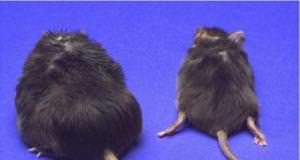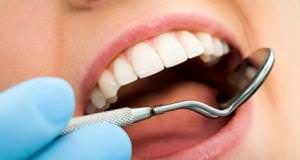Study Links Dopamine and Biological Clock to Snacking, Overeating and Obesity
Between 1976 and 1980, about 15% of U.S. adults were obese. Today, about 40% of adults are obese, and another 33% are overweight, driving...
Omega 3 Fatty Acids Lessen Severity of Osteoarthritis in Mice
Mice consuming a supplement of omega 3 fatty acids had healthier joints than those fed diets high in saturated fats and omega 6 fatty...
Weight Loss Supplements Don’t Work, Claim Reviews
Two papers presented at an international obesity conference yesterday have found that a range of the most popular weight loss supplements available on the market are no more effective than a placebo. Neither of the studies, presented at the International Congress on Obesity in Stockholm, Sweden, have yet to be published. According to the author of one of the papers, the science backing a variety of weight loss supplements is lacking.
Every Single Junk Food Meal Damages Your Arteries, New Study Reveals
A single junk food meal -- composed mainly of saturated fat -- is detrimental to the health of the arteries, while no damage occurs after consuming a Mediterranean meal rich in good fats such as mono-and polyunsaturated fatty acids, according to researchers at the University of Montreal-affiliated ÉPIC Center of the Montreal Heart Institute. The Mediterranean meal may even have a positive effect on the arteries.
Could Vinegar be a Natural Fat Fighter?
Ordinary vinegar – acetic acid – may prevent the build up of fat, and therefore weight gain, according to results of a study with...
Aspirin, NSAIDs cut Breast Cancer Recurrence in Overweight Women by 52...
Recurrence of hormone-related breast cancer was cut by half in overweight and obese women who regularly used aspirin or other nonsteroidal anti-inflammatory drugs (NSAIDs),...
Soluble Fiber Strikes A Blow To Belly Fat
All fat is not created equal. Unsightly as it is, subcutaneous fat, the fat right under the skin, is not as dangerous to overall health as visceral fat, the fat deep in the belly surrounding vital organs. According to a new study by researchers at Wake Forest Baptist Medical Center, the way to zero in and reduce visceral fat is simple: eat more soluble fiber from vegetables, fruit and beans, and engage in moderate activity.
Less Sleep Leads To More Eating And More Weight Gain, According...
Sleeping just five hours a night over a workweek and having unlimited access to food caused participants in a new study led by the University of Colorado Boulder to gain nearly two pounds of weight.
Yo-Yo Dieting Vs. Obesity? Dieters May Be Healthier, Live Longer, Mouse...
Yo-yo dieters may be healthier and live longer than those who stay obese, a new Ohio University study in mice suggests. Mice that switched between a high-fat and low-fat diet every four weeks during their approximate two-year lifespan lived about 25 percent longer and had better blood glucose levels than obese animals that ate a high-fat diet. The yo-yo dieters also lived about as long as a control group of mice steadily fed a low-fat diet.
Nuisance Or Nutrient? Kudzu Shows Promise As A Dietary Supplement
Kudzu, the nuisance vine that has overgrown almost 10 million acres in the southeastern United States, may sprout into a dietary supplement. Scientists in Alabama and Iowa are reporting the first evidence that root extracts from kudzu show promise as a dietary supplement for a high-risk condition — the metabolic syndrome — that affects almost ...
Losing Weight Sooner Gives Best Chance Of Reversing Heart Damage, Study...
In a study of the impact of weight loss on reversing heart damage from obesity, Johns Hopkins researchers found that poor heart function in young obese mice can be reversed when the animals lose weight from a low-calorie diet. However, older mice, who had been obese for a longer period of time, did not regain better heart function after they were on the same low-calorie diet.
Gum Inflammation Linked To Alzheimer’s Disease
NYU dental researchers have found the first long-term evidence that periodontal (gum) disease may increase the risk of cognitive dysfunction associated with Alzheimer's disease...



















